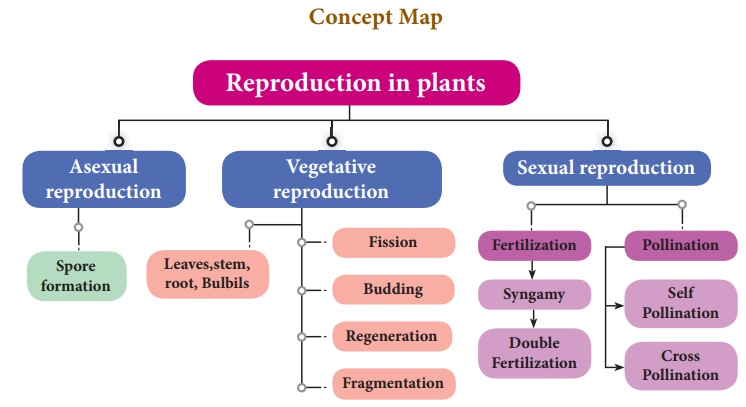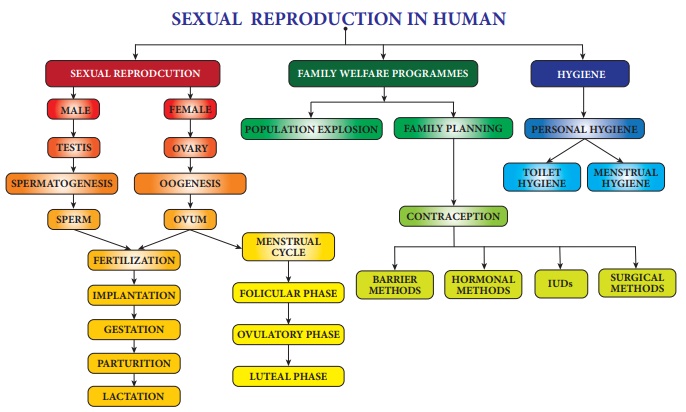Introduction - Reproduction in Plants and Animals | 10th Science : Chapter 17 : Reproduction in Plants and Animals
Chapter: 10th Science : Chapter 17 : Reproduction in Plants and Animals
Reproduction in Plants and Animals
REPRODUCTION IN PLANTS AND ANIMALS
Introduction
“Living organisms cannot
survive for an indefinite period on earth. All living organisms have the
ability to produce more of its own kind by the process called reproduction.
Reproduction is the unfolding of life forms where new individuals are formed.
It ensures continuity and survival of the species. This process is to preserve
individual species and it is called as self-perpetuation. The time required to
reproduce also varies from organism to organism. You may find great variations
in period of reproduction in yeast, bacteria, rat, cow, elephant and humans. In
sexual reproduction offsprings are produced by the union of male and female
gametes (sperm and egg). The male and female gametes contain the genetic
material or genes present on the chromosomes which transmit the characteristic
traits to the next generation. There are three types of reproduction in plants
namely i) Vegetative ii) Asexual and iii) Sexual reproduction. In this
unit you will know more about the types and the process of asexual and sexual
reproduction in plants, animals and human.


Related Topics